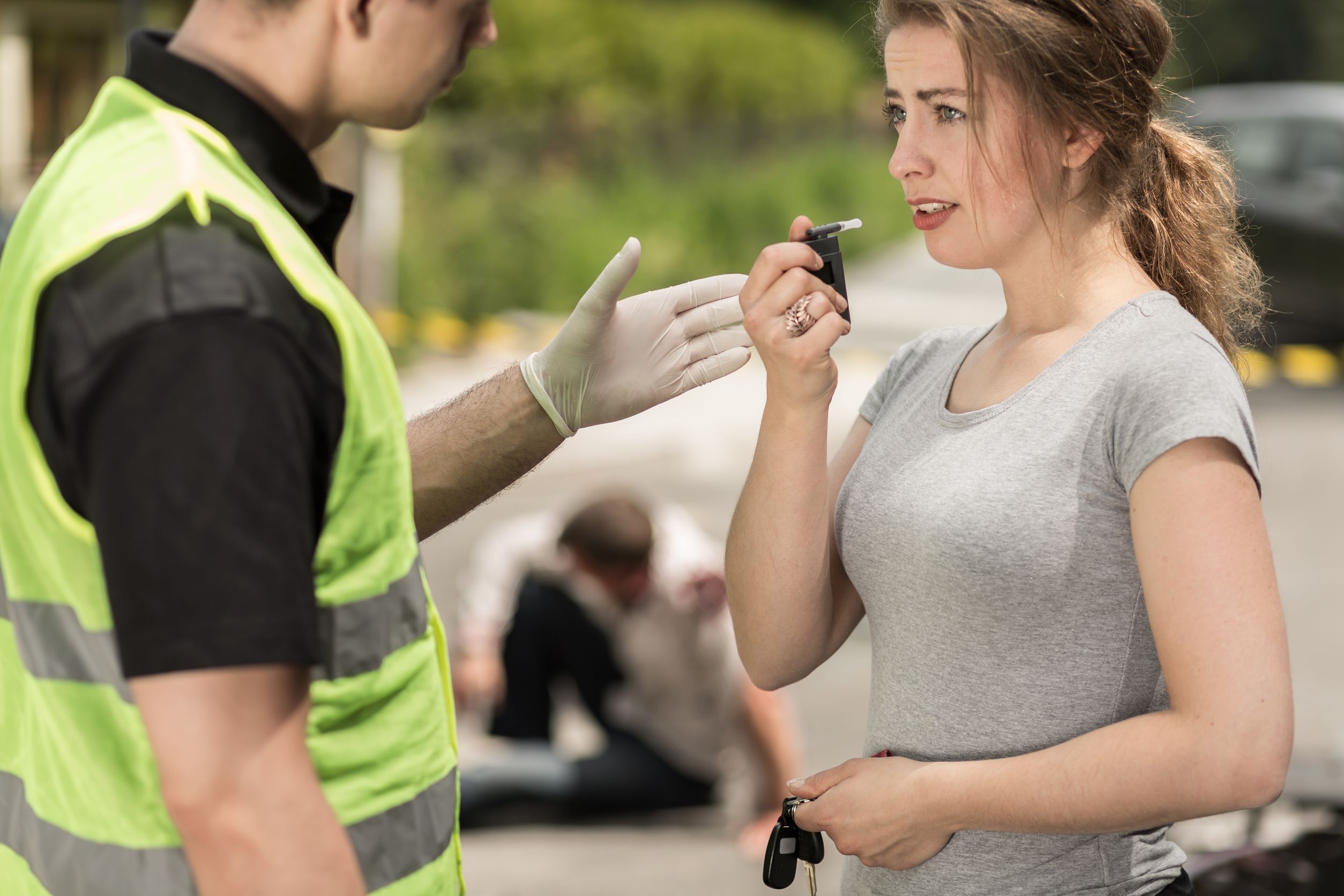Can You Refuse a Breathalyzer Test in Ontario?
One of the questions I am asked most frequently is “Can I refuse to blow?” This is a simple question with a very complicated set of answers. The starting point for me providing this answer is that this article does not constitute legal advice. You should read this for an introduction to the subject and, if you are interested in getting formal legal advice, give me a call and we can discuss further. The reason this disclaimer is so important is that in well over 90% of cases, if a person were to refuse to provide a breath sample they would be committing a criminal offence for which they would be charged. Even if you are not driving under the influence, the officer is likely to charge you and then you will need to sort things out.
The first thing we need to understand is what is meant by ‘breathalyzer.’ A lot of people don’t know, and while many of the rules are the same for different kinds of machines, there are some differences. Understanding what you’re being asked/ordered to blow into may matter.
In order to investigate possible alcohol-related driving offences, the police are provided with some tools. They can use ‘approved screening devices’ or ‘approved instruments.’ The purpose of these tools are different and the point in the investigation at which they are used also varies.
Approved Screening Devices
The Criminal Code states the following at s.254(2)(b):
If a peace officer has reasonable grounds to suspect that a person has alcohol in their body and that the person has, within the preceding three hours, operated a motor vehicle, the peace officer may, by demand, require the person to provide forthwith a sample of breath that, in the peace officer’s opinion, will enable a proper analysis to be made by means of an approved screening device and, if necessary, to accompany the peace officer for that purpose.
* Note that this subsection has been condensed for the specifics of this article and has left out the provisions concerning railway equipment, aircraft, or vessels and also has left out some of the drug provisions. For the complete text please look at section 254 of the Criminal Code of Canada canlii.
What is an approved screening device?
At the end of this article is a list of approved screening devices. This kind of machine is typically a small hand-held device, the size of the machine the waitress brings to your table so you can pay the cheque at a restaurant. It has a place for a disposable mouthpiece or straw to be inserted and it measures (in a less certain and less scientific way than approved instruments) the blood alcohol concentration in your body. Different devices work in different ways but the most common devices will provide one of three results:
- A number, if your BAC is from 0 to .049;
- A “W” (for “Warn”) or an “A” (for “Alert”) if your BAC is between 0.05 and 0.10;
- An “F” for “fail” if your blood alcohol content is above 100mg of alcohol in 100 ml of blood
Isn’t the legal limit 80?
People often wonder why these devices are calibrated to fail only above 0.10 when the legal limit is 0.08. A screening device, as mentioned above, is not as scientifically precise as the approved instruments discussed below. They are less expensive machines, often transported from place to place, and there are fewer checks for their accuracy. Unlike approved instruments, only one sample is usually necessary to serve its purpose (although there are numerous situations where more than one sample may be taken. For this reason, a person is given the benefit of the doubt. If the machine thinks you’re at 80 or 85 or 90 or 95, it will not “fail.” Please note that in Ontario, like many provinces and states, although not a criminal offence, having a blood alcohol concentration above 50 (.05) is a provincial offence which will suspend your license on the spot for three days (72 hour suspension).
As it pertains to the criminal offences of “impaired driving” and “driving over 80 mg,” the purpose of this device is not to charge you but to give the police the grounds to arrest you. Coming back to the question at hand: can you refuse this? Once again, the short answer is no. If you do refuse, you will be committing an offence in many instances. There are two broad categories of reasons why a person may refuse (note that “failing to provide” is also an offence. “Fail to provide” is equivalent to a refusal but is usually charged when the person appears to be pretending to blow but is deliberately doing (or not doing) something to prevent the sample from registering (i.e. blowing out the side of the mouth, sucking in, or blocking the tube with their tongue). This article is not discussing “fail to blow” cases as there are some additional considerations there).
The first reason a person might lawfully refuse comes from a later subsection in the Criminal Code:
254 (5) Everyone commits an offence who, without reasonable excuse, fails or refuses to comply with a demand made under this section.
This is the section which sets out the offence. Here if you have a “reasonable excuse” you would not be guilty of an offence. Unlike many defences in criminal law, this defence requires you, the accused person, to prove that this excuse existed in fact, and that it was sufficient in law. You must prove this on a “balance of probabilities” which means you must prove it’s more probable than not that you had a reasonable excuse. Proving this on the facts means that you usually need to testify, or have someone testify about the existence of the relevant facts. For example, if you had a medical condition where providing a breath sample would cause you a serious medical problem, you would need to convince the court that you had such a condition, and were informed of the consequences which prompted you to refuse. If the Court doubts your credibility, thinks you are making it up, or questions the reliability of what you say, you may not succeed with this defence. If you do prove the facts that underlie your “excuse” you also need to convince the court that it fits within the law as to what is considered reasonable. For instance, there have been situations where questioning the hygienic nature of the mouthpiece might qualify but other cases where this belief might not. Offering to provide a blood sample or a breath sample at the police station, to give another class of examples, is not considered a reasonable excuse; neither is wanting to speak to a lawyer first. Simply put, if you have a reason you feel you cannot provide the breath sample, you need to be sure it’s a compelling reason and one that you can present to a court in a convincing way. The Court will not accept a doctor’s note as proof of any medical condition; the doctor will likely need to testify if that was the nature of your excuse.
The second way you can legally refuse is if the police are making an unlawful demand. For example, if you were lying by the beach under an umbrella and a police officer showed up and said “blow into this now” it might be a situation where you could refuse. But it also might not. Even if you have never driven a car in your life, you could theoretically be required to provide a breath sample and, failing to do so would make you guilty of this criminal offence.
So, how does it work then? What makes a demand legal or not?
The criteria for making a roadside breath demand (for an approved device sample) are listed within section 254(2)(b) of the Criminal Code. Broken down, they are as follows:
- The demand is made by a peace officer;
- The peace officer has reasonable grounds to suspect alcohol in the body of the person;
- The peace officer has reasonable grounds to suspect that the person is driving or has driven a vehicle in the past 3 hours;
- The demand is actually a demand.
- One other criterion which will be discussed below.
So if all of these criteria are met, the demand is legal and you would be committing an offence to refuse it, unless you could prove a reasonable excuse, or raise some other form of substantive or procedural defence in your case.
Applying these criteria, situations where you could legally refuse would include:
- If the person demanding you to provide it was not a peace officer;
- If the person had no reasonable suspicion that you had alcohol in your body;
- If the person had no reasonable suspicion that you had driven in the past 3 hours;
- If the person said “could you please provide a breath sample” but said nothing more and then charged you for saying no;
- If the person didn’t comply with the last point discussed below.
Note that if you weren’t actually driving or if you did not drink anything, this might not be a valid defence. Why? Well the issue is not whether or not you were driving or if you were drinking. The issue is whether the police officer believed you were. And the officer doesn’t even need to believe that—he only needs to suspect it. So, if a bystander told a police officer “Hey, he was drinking and then he got in the car,” even if that person is lying or mistaken, the police officer might be found to be reasonable.
This is what makes refusing such a risky decision. In your mind it might be clear to you that you were not driving. But unless you can be sure that the police officer had no way of being misinformed, then you could be walking yourself into a conviction.
The last point referred to above is the “forthwith” point. Case law (most recently the Ontario Court of Appeal in R. v. Quansah, confirmed that the meaning of forthwith means ‘immediately,’ subject to a short list of exceptions. This jurisprudence also confirmed that the “immediacy requirement” applies to the police officer’s demand. So, if a police officer forms the intention to demand your breath, but then waits a period of time before actually demanding your breath, the demand may not be seen as lawful. A lot of cases have debated over whether or not the police acted immediately. Most police officers will testify they formed their suspicion and made the demand. It is only through a skillful cross-examination that you can (for example) nail down when the police officer first smelled the alcohol, and that the smell meant to him that there was alcohol in your body; and then nail down that he delayed a few minutes. It used to be that you needed longer periods of time, but since Quansah confirmed that immediately usually means ‘right away’ even short delays of a few minutes can be sufficient to make the police officer’s actions unlawful.
Approved Instrument
The breathalyzer at the station is called an ‘approved instrument.’ (A list of approved instruments is also provided at the end of this article.) This is usually a bigger machine, often larger than a laptop computer or typewriter. It has a hose with a disposable mouthpiece at the end. It measures the blood alcohol content through your breath to the nearest milligram and provides a printout of the results. This process is often video recorded. Two or more tests are taken. A number is always given no matter what your results are (if the samples are sufficient).
The provision is found at section 254(3) of the Criminal Code:
(3) If a peace officer has reasonable grounds to believe that a person is committing, or at any time within the preceding three hours has committed, an offence under section 253 as a result of the consumption of alcohol, the peace officer may, by demand made as soon as practicable, require the person to provide, as soon as practicable, samples of breath that, in a qualified technician’s opinion, will enable a proper analysis to be made to determine the concentration, if any, of alcohol in the person’s blood, and if necessary, to accompany the peace officer for that purpose.
* Note that this subsection has been condensed for the specifics of this article and has left out some provisions. For the complete text please look at section 254 of the Criminal Code of Canada canlii.
The reasonable excuse defence also applies to this section.
You can also refuse if the demand is unlawful. A lawful demand is one that:
- Is made by a peace officer
- Has reasonable grounds to believe the person committed within the past three hours a drinking and driving offence
- A demand is made
- The demand is made as soon as practicable
Once again, the issue is not whether or not you were driving or had been drinking but rather whether or not the officer was reasonable in his belief. Refusing for the absence of one of these criteria should only ever be done if you are very sure.
Why People Refuse
Grace Hopper once said “it is easier to ask for forgiveness than to ask for permission.” This quote can loosely apply to the decision to refuse. It cannot be understated that refusing is always risky and often puts you in a position to have to persuade the Court after the fact of your position. It also cannot be understated that this article is not legal advice.
That said, a person who provides breath samples and later wishes to complain that they were unlawfully obtained will first need to establish that there was unlawfulness (or at least show the Crown has not demonstrated they were probably lawfully obtained). And then, after doing that, the person will need to convince the court the mistake was sufficient to merit the breathalyzer results being thrown out. To do this, you need to bring an Application under the Charter of Rights and comply with the rules.
If you refuse, however, the onus is on the Crown to prove the demand was lawful beyond a reasonable doubt, and you do not need to bring an Application under the Charter of Rights and Freedoms.
Also, sometimes if bodily harm or death results from an accident and you know that providing a breath sample will provide evidence of your alcohol consumption, you might want to prefer the refusal charge in order to avoid the more serious penalties. A couple comments though: firstly, this loophole was, for the most part, closed nearly a decade ago by changes to the Criminal Code. There are still some ways that it could apply, but for the most part it does not help you anymore. Secondly, making the decision to do this could be breaking the law (refusing a demand, if the legality is not at issue, without a reasonable excuse to do so) and we do not in any way condone violating the law.
Devices and Instruments
Although in a refusal case, the Crown does not need to prove that the device or instrument in question was actually approved in a ‘fail to provide’ case where a person appears to be attempting to provide a sample but fails to do so, the status of the device/instrument as approved or not approved could be relevant. Also you can consult this list for informative purposes.
Approved Screening Devices Order, SI/85-200
The following devices, each being a device of a kind that is designed to ascertain the presence of alcohol in the blood of a person, are hereby approved for the purposes of section 254 of the Criminal Code:
(a) Alcolmeter S-L2;
(b) Alco-Sûr;
(c) Alcotest® 7410 PA3;
(d) Alcotest® 7410 GLC;
(e) Alco-Sensor IV DWF;
(f) Alco-Sensor IV PWF;
(g) Intoxilyzer 400D;
(h) Alco-Sensor FST; and
(i) Dräger Alcotest 6810.
Approved Breath Analysis Instruments Order, SI/85-201
The following instruments, each being an instrument of a kind that is designed to receive and make an analysis of a sample of the breath of a person in order to measure the concentration of alcohol in the blood of that person, are hereby approved as suitable for the purposes of section 258 of the Criminal Code:
(a) to (c) [Repealed, SOR/2012-237, s. 1]
(d) to (g) [Repealed, SOR/2013-107, s. 1]
(h) Intoxilyzer ® 5000 C;
(i) [Repealed, SOR/2012-237, s. 1]
(j) [Repealed, SOR/2013-107, s. 1]
(k) BAC Datamaster C;
(l) Alco-Sensor IV-RBT IV;
(m) [Repealed, SOR/2013-107, s. 1]
(n) Alco-Sensor IV/RBT IV-K;
(o) Alcotest 7110 MKIII Dual C;
(p) Intoxilyzer® 8000 C;
(q) DataMaster DMT-C; and
(r) Intox EC/IR II.
David Anber
David Anber has been a trailblazing legal practitioner since 2006. His early entry into law practice during his studies marked the beginning of a distinguished career. As a member of both Ontario and Quebec’s bar associations, David excels in defending traffic and criminal cases across both provinces. David contributes to legal discourse through articles for the Defence Counsel Association of Ottawa and the Criminal Lawyer’s Association of Ontario.


